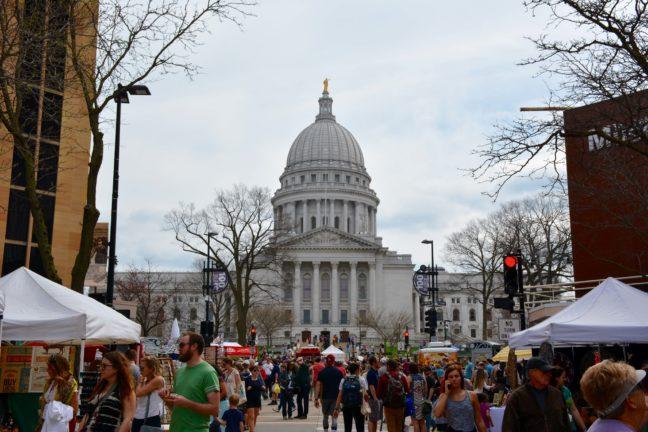A University of Wisconsin student recently won a Wisconsin Idea Fellowship for her proposal to help rethink farmer’s markets in an effort to make them more accessible to their surrounding communities.
UW junior Chloe Green, working with the UW Kaufman Lab for the Study and Design of Food Systems and Marketplaces, proposed studying and evaluating farmers’ markets to help analyze how they can be more inclusive to those receiving Supplemental Nutrition Assistance Program benefits and other assistance programs.
Values of accessibility could be questions such as asking people how they got to the market or asking whether they could feasibly get there every time, Green said. But unlike other surveys, the questioning will take place in what is called a “biased point,” such as at a stand which distributes these market dollars, instead of a neutral point like an entrance.
The study, which will be sponsored by American Family Insurance, is going to be conducted this summer with specific markets in Dane, Milwaukee and Marathon counties. In addition to The Kaufman Lab, the Wisconsin Idea Project and REAP Food Group of Madison will also be helping the research project.
“I think a lot of people view farmers’ markets as a privilege and they are expensive and that only certain people can go, but markets all across the country are trying to make them more accessible to people who cannot afford it or use SNAP benefits,” Green said.
Green touched on how daunting farmer’s markets can be to those without as much financial stability, referencing how Madisonians from the east side are not seen in as great of numbers at the market on Capitol Square.
Madison’s farmers’ market does not have a clear stand for people to redeem their SNAP benefits, which can feel elitist to those receiving benefits, Green said. Feeling they would be judged at a farmers’ market is a barrier for lower-income people to attend, Green added.
“My biggest hope is that … in my interviews, I can get people to open up because that is going to be the most influential,” Green said.
The reason there are Market Dollars and other systems of providing assistance to those in need at farmers’ markets, Green explained, is not only to help those in need but also to help the producers see a larger volume of customers. The more people attend the markets and actively participate in the flow of exchange, the more the local economy benefits, Green said.
Green said she has realistic expectations for the research project itself. She understands while it may not revolutionize the market overnight, the hope is that people may be able to glean from the results news ways of thinking about farmer’s markets to make them more welcoming to their surrounding communities.
Bigger problems, like bus lines not running late enough or not enough bike racks for people to ride their bikes to the market, could also be addressed, which Green said would be “huge” for increasing accessibility.
“I am hoping if I find some good research and correlations, people will consider it and that some markets will even be encouraged to run an hour or two later,” Green said.
Green is also focusing efforts on a Facebook page called Open Air Market Network to help shine a spotlight on markets all around the world.
Increasing awareness and attention is beneficial to the movement as a whole and the more people who take part in them, the more everyone benefits, Green said.
“People should go to the farmer’s market not just because it is an event, but I feel like there is an importance that a lot of people miss in handing your dollar to the people who are growing your food,” Green said. “You vote with your dollar and you are paying the people who are working all day and making the food.”


